The Big Picture
- Atlantic City's pre-Prohibition era was marked by a freewheeling atmosphere and rampant illegal activities, which were largely tolerated by the city's residents and officials.
- Enoch "Nucky" Johnson, the real-life inspiration for the character Nucky Thompson in Boardwalk Empire, rose to power through corrupt and criminal means, thanks to his association with the city's boss, The Commodore.
- While the show embellishes some aspects of Nucky Thompson's character, such as his involvement in violence, the real Nucky Johnson was primarily a corrupt political boss who flouted the law but did not engage in direct acts of violence.
The story of Enoch “Nucky” Thompson’s (Steve Buscemi) ironclad rule over Atlantic City during the Prohibition era may seem too extraordinary to be true (and to some extent it is), but it's rooted in reality. Although Nelson Johnson’s nonfiction book Boardwalk Empire covers several eras of A.C.’s history, its most compelling character is Enoch “Nucky” Johnson, the real-life inspiration for the HBO series’ Nucky Thompson. As we explore the true stories as relayed in Nelson Johnson’s book, we’ll see how the show is mostly accurate in its depiction of corruption and crime during the Roaring Twenties. But we’ll also discover how the real-life Johnson differs substantially from the fictional Thompson.
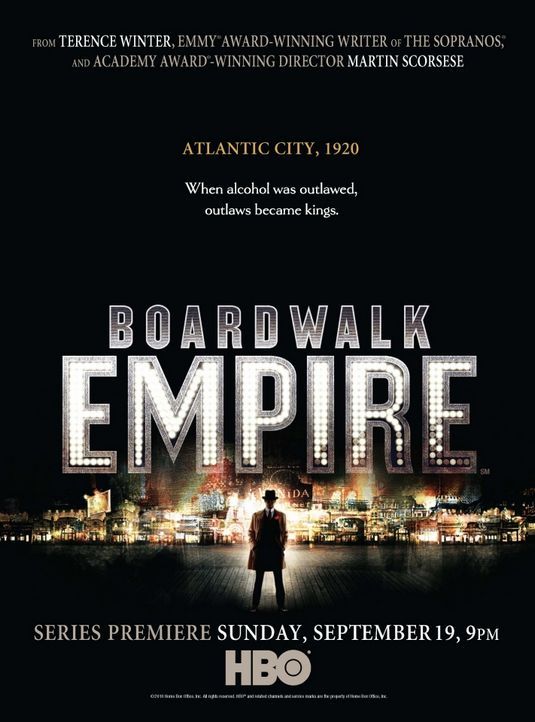
Boardwalk Empire
An Atlantic City politician plays both sides of the law by conspiring with gangsters during the Prohibition era.
- Release Date
- September 19, 2010
- Cast
- Steve Buscemi , Vincent Piazza , Kelly Macdonald , Michael Shannon , Stephen Graham , Michael K. Williams
- Main Genre
- Drama
- Seasons
- 5
How Did Atlantic City Work Pre-Prohibition?
Prior to Prohibition, Atlantic City already had the reputation of being a freewheeling, law-skirting seaside resort town. At this time, the city primarily served working-class customers from Philadelphia looking for a reprieve from their grueling jobs. Periodically, newspapers and politicians would become irate that so many brothels and gambling dens were known to operate in A.C., but it didn’t result in much reform. Virtually everyone in Atlantic City either directly profited from illegal business or knew people who did. This, in combination with the city’s “boss” system, resulted in the continuation of the illicit status quo.
A “boss,” such as New York City’s William Tweed, is an individual with prominent business and political connections who serves as the sort of unofficial mayor of a city, albeit with far more power than the actual mayor. In Atlantic City’s early years, this boss was Louis Kuehnle, commonly known around town as “The Commodore.” Kuehnle served as the inspiration for Nucky Thompson’s mentor in Boardwalk Empire, also called The Commodore (Dabney Coleman). In real life, much like in the show, The Commodore came to control the city’s business and political dealings to the extent that, as Johnson writes in his book, “every candidate, employee, city contract, and mercantile license required his nod of approval.”
How Did Sheriff Johnson Rule Over Atlantic City?
Kuehnle’s right-hand man while serving as the unofficial boss of Atlantic City was Sheriff Smith Johnson, who served as either sheriff or deputy sheriff for two decades. This is consistent with the character of Ethan Thompson (Tom Aldredge), Nucky’s dad in Boardwalk Empire. Much like his real-life counterpart, Ethan was an Atlantic County sheriff and close ally to The Commodore who participated in his boss’ corrupt dealings.
The Commodore's entire business operation was largely financed by the protection money illegal business operators would pay to prevent Johnson or anyone else from closing down their establishments. It was also the sheriff’s job to select jurors, meaning that Johnson could ensure that no grand jury ever indicted anyone associated with The Commodore. Via this corrupt system, The Commodore and Sheriff Johnson ruled over Atlantic City for many years.
Why Was The Commodore Beloved in New Jersey?
It might seem surprising that anyone would tolerate this fundamentally undemocratic system of governance, but the plain reality was that The Commodore was extraordinarily effective at solving the city’s problems. He more or less single-handedly broke up a telephone monopoly, rebuilt the boardwalk, paved the roads, improved utility services, and created a new public transportation system. Upgrades to the city’s infrastructure were good for business, making The Commodore a beloved figure among many (but not all) business owners.
In addition to the genuine support he received from the community, The Commodore also empowered his political operation via bald-faced election fraud. A member of the Republican Party, The Commodore would have his workers pay $2 per ballot to anyone who voted Republican. This resulted in people voting multiple times. Non-voters were often harassed until they went to the polls. Lopsided electoral victories resulted in The Commodore having widespread political influence throughout the State of New Jersey.
How Did Nucky Thompson Really Rise to Power?
An investigation into election fraud was sparked by then-Governor Woodrow Wilson in 1911. Unsurprisingly, a massive amount of damning evidence was accumulated that pointed directly to The Commodore as the orchestrator of widespread fraud. One name that came up during these investigations was that of the newly crowned sheriff, Enoch Johnson, the son of Smith Johnson. Despite being indicted, Enoch (and most others aligned with the Commodore) was acquitted thanks to friendly jurors. Enoch or “Nucky” as he would come to be known, made a name for himself at trial by arrogantly defying the Attorney General.
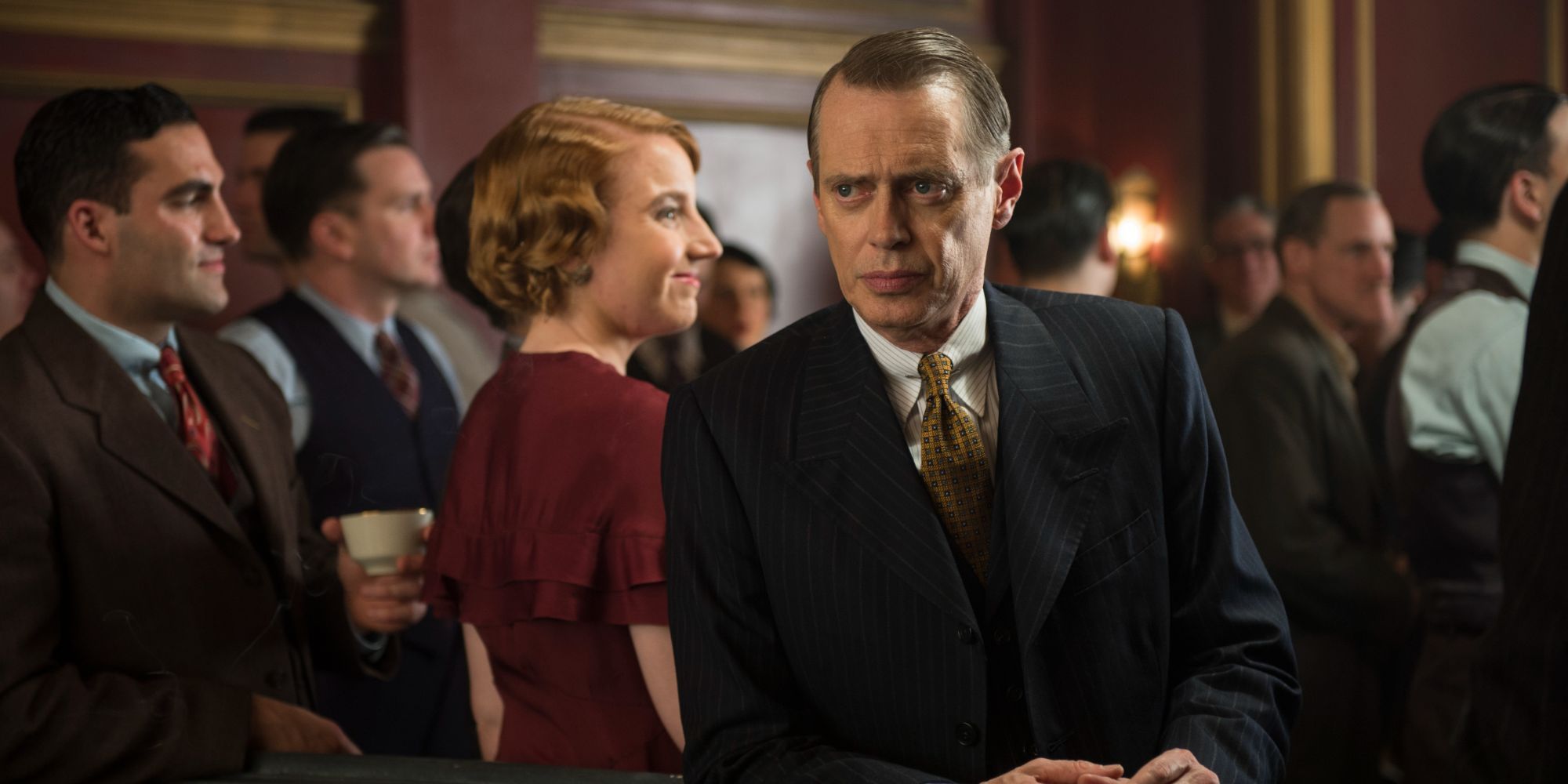
This Is Still 'Boardwalk Empire's Most Compelling Character
Many have played versions of this character over the years, but none have done it as well as this 'Boardwalk Empire' actor.Enoch “Nucky” Johnson quickly emerged as The Commodore’s successor after The Commodore was sentenced to prison for one year. When The Commodore returned to Atlantic City, he found that Nucky had rapidly ascended as the local leader of the Republican Party. Despite the Commodore’s enduring popularity, Nucky essentially took over much of his power and kept The Commodore at bay by supporting him for City Commissioner. This gave Nucky free rein to control Atlantic City.
How Was the Real Nucky Johnson Different From the 'Boardwalk Empire' Character?
Nucky Johnson, described in the book Boardwalk Empire as a “decadent monarch,” differed significantly in appearance from his fictional counterpart played by Steve Buscemi. The real Nucky was tall and bald with a booming voice, contrasted with the fictional Nucky, who is smaller and quieter. But they both shared expensive tastes, most notably in the form of a fresh red carnation adorning their lapels. Both were driven around in fancy cars, owned several homes, hosted lavish parties, and maintained a bevy of staffers to cater to their every need. The real Nucky’s estimated yearly income was around $500,000, which adjusted for inflation would be roughly around $7 or $8 million in 2023.
Much like in the show, the real Nucky Johnson held several city jobs, such as sheriff and county treasurer, but never ran for office. Instead, Nucky used his status as a political boss to back friendly politicians, such as New Jersey Governor Walter Edge. But it was Prohibition, the banning of intoxicating liquors, that was the source of much of Nucky’s power. Democrat Woodrow Wilson, the moralist reformer who was now President of the United States, had unwittingly aided Nucky’s ascendancy by taking out The Commodore and then enhanced Nucky’s wealth and influence by banning alcohol.
How Did Atlantic City's Business Owners React to Prohibition?
Atlantic City’s business owners reacted to Prohibition much the same way they reacted to other laws prohibiting vice: they totally ignored it. In other cities, underground bars known as speakeasies sprang up all over the place. In Atlantic City, bars and restaurants continued to operate as they always had. It was essentially as if Prohibition didn’t exist in the seaside oasis of A.C. This of course made the city an increasingly attractive location for parties, business conventions, and entertainment. During the period known as the “Roaring Twenties,” Atlantic City became known as “second Broadway,” the home to countless entertainers and performers. Some of the big names who launched their careers in the seaside town include Bing Crosby, Bob Hope, and Ed Sullivan.
Nucky’s total control of Atlantic City became a source of envy for emerging organized crime figures, who were forced to operate in the dark away from law enforcement. Not only did Nucky violate the law in front of the law, he hand-picked every cop in the city. Nucky’s reign over South Jersey made him a colleague of infamous gangsters such as Lucky Luciano, Meyer Lansky, Al Capone, and Waxey Gordon, all of whom are depicted in the show. In real life, Nucky hosted a historic meeting between these crime figures that resulted in the first nationwide crime syndicate. Sadly, this meeting was not depicted in the show, due to the 7-year time gap between Seasons 4 and 5.
Who Was the Real Arnold Rothstein?
One notable, highly fictionalized storyline in Boardwalk Empire is the long-running relationship between Nucky Thompson and New York gambler/gangster Arnold Rothstein (Michael Stuhlbarg). In fact, Rothstein is not mentioned once in the book. It seems likely, however, that the real Nucky would’ve crossed paths with Rothstein at some point. Rothstein was not only an influential bootlegger and leader of the Jewish mob in New York, he was also a mentor to Lucky Luciano and Meyer Lansky, who both did business with Nucky. It’s easy to understand why the writers of Boardwalk included Rothstein, who made headlines for fixing the 1919 World Series. Rothstein served as an important bridge between the more violent, thuggish criminals of the pre-Prohibition era and the less violent, more business-savvy criminals who flourished during Prohibition.
What Was Nucky’s Real Personal Life Like?
As depicted in the show, Nucky rented an entire floor of the Ritz Carlton Hotel. In real life, he tended to be accompanied by call girls everywhere he went, as opposed to “dating” one or two women in particular. The real Nucky’s personal life was more hedonistic than seen in the show. His first marriage to his college sweetheart ended when his wife died at an unexpectedly young age. This is consistent with the show. However, his second marriage would come much later in life, whereas the show depicts him remarrying during the 1920s. In the show, Nucky remarries and becomes a stepfather during this period. In real life, Nucky spent all the Roaring Twenties chasing after as many women as he could.
What Were Nucky’s Violent Tendencies (or Lack Thereof)?
The single biggest discrepancy between the real Nucky Johnson and the fictional Nucky Thompson is their respective use of violence. In Boardwalk Empire, we see Nucky Thompson not only ordering the deaths of his enemies but actually murdering people himself. In real life, there’s no concrete evidence that Nucky Johnson ever took part in any killings. Certainly, Johnson had access to gangsters and hitmen, but if he ever did order someone to be killed, we don’t have any evidence of it.
In general, the real Nucky Johnson was a corrupt political boss who openly flouted the law. In the show, Nucky Thompson is portrayed as more of an out-and-out gangster, only somewhat less brutal than people like Al Capone or Lucky Luciano. To be fair, a more accurate portrayal of Nucky would be less dramatically compelling. Some of Boardwalk’s most memorable scenes involve bloody massacres and heart-pounding confrontations between enemies. These scenes are mostly fiction or, at best, highly speculative.
How Did Nucky Thompson Die in Real Life?
In Boardwalk Empire, Nucky Thompson is killed by the son of Jimmy Darmody (Michael Pitt). Although Darmody was very loosely based on a real person, the real Nucky Johnson’s demise was considerably different and much more peaceful. Nucky Johnson was dethroned as Atlantic City’s political boss following the repeal of Prohibition when undercover IRS and FBI agents came to South Jersey to investigate him. A series of exposes in William Randolph Heart’s newspapers (Hearst apparently targeted Johnson because of a love triangle situation with a showgirl) shed light on Nucky’s dictatorial control over A.C. The ensuing trial resulted in a verdict of guilty for Johnson, who was sentenced to 10 years in prison.
Nucky was released from prison only four years after his sentencing. Now remarried, he lived the rest of his days in relative peace and humility, becoming a kind of local legend and mentor to aspiring politicos. He hobnobbed with A.C.’s elite but never sought any office nor acquired anything remotely similar to the level of power he once had. Nucky Johnson died in 1968 at a nursing home at the age of 85.
Boardwalk Empire is available to stream on Max in the U.S.

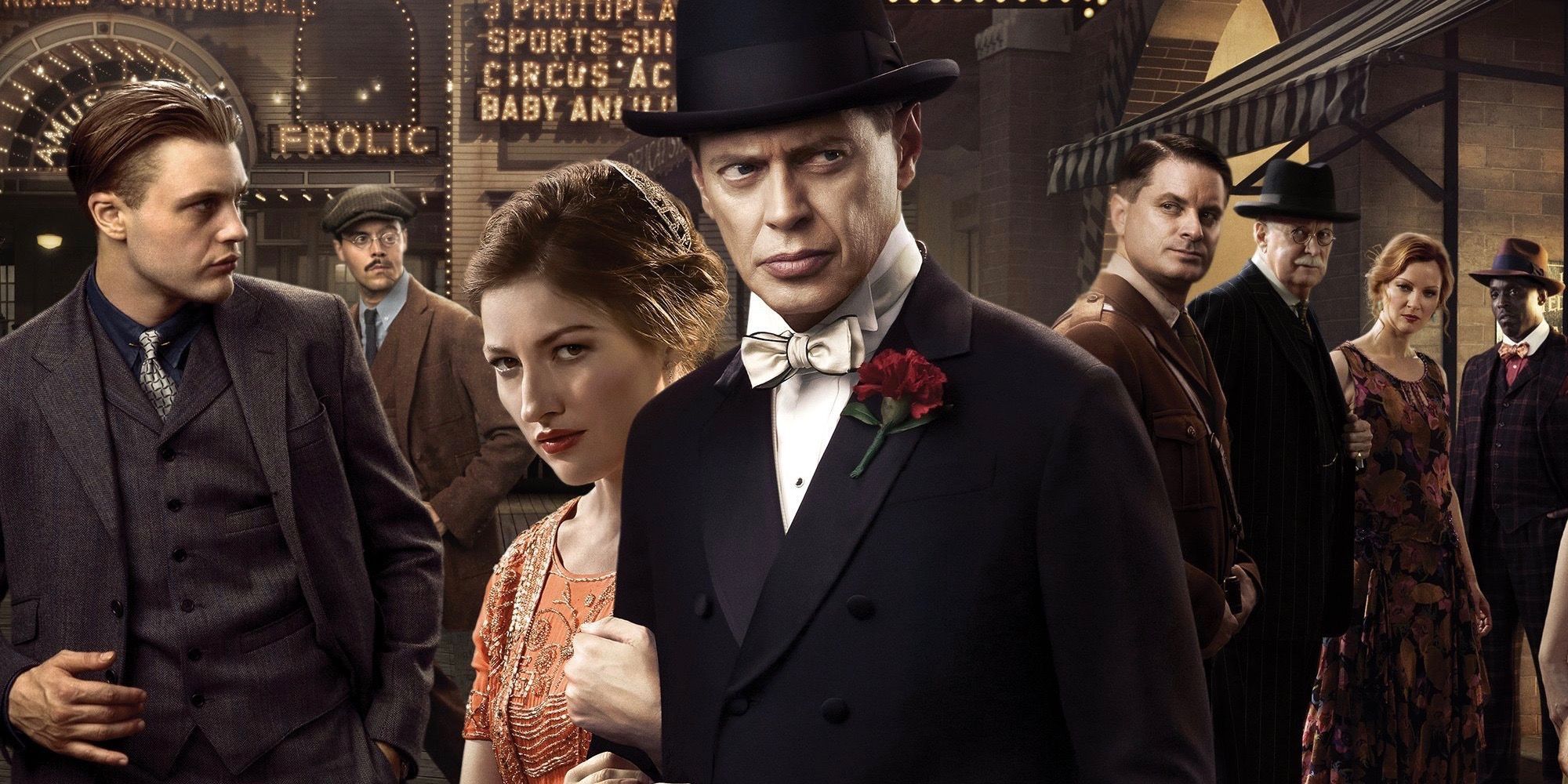
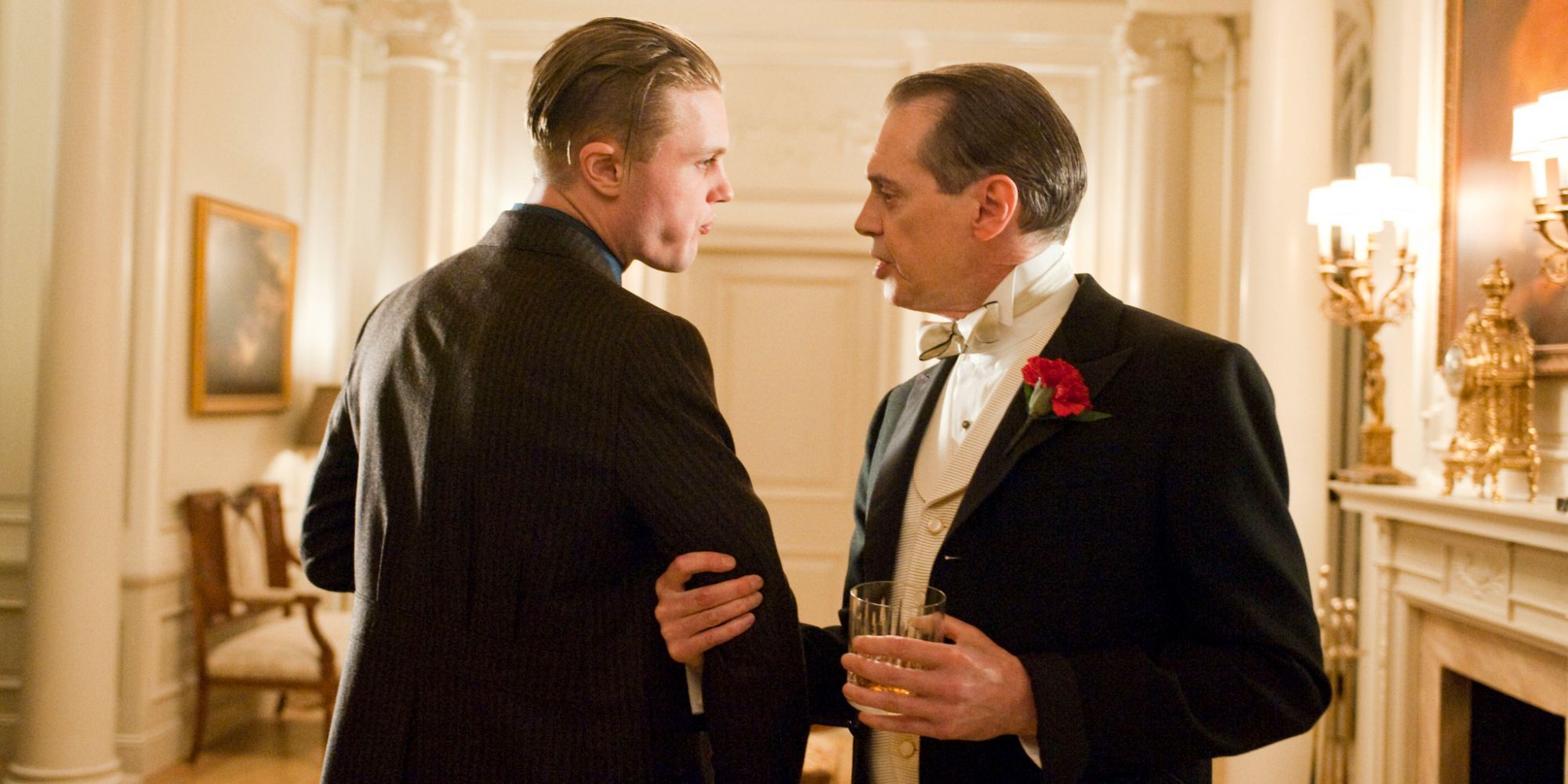
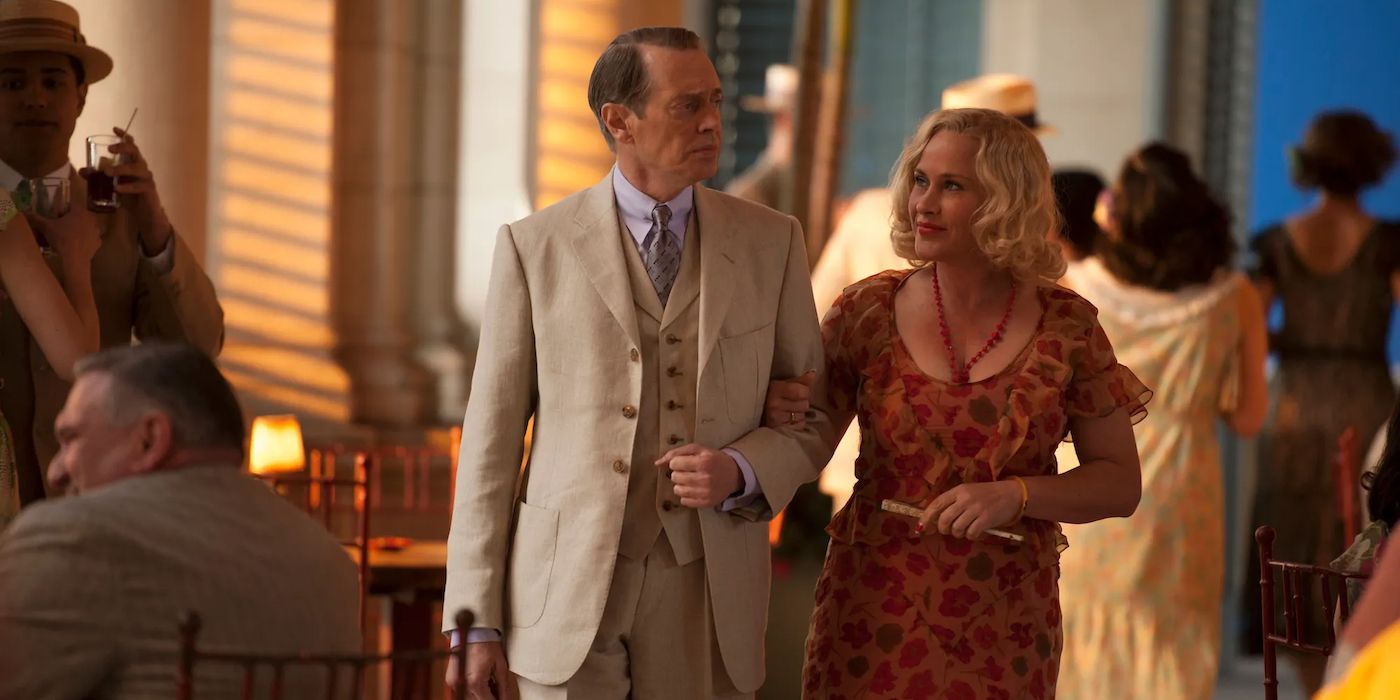
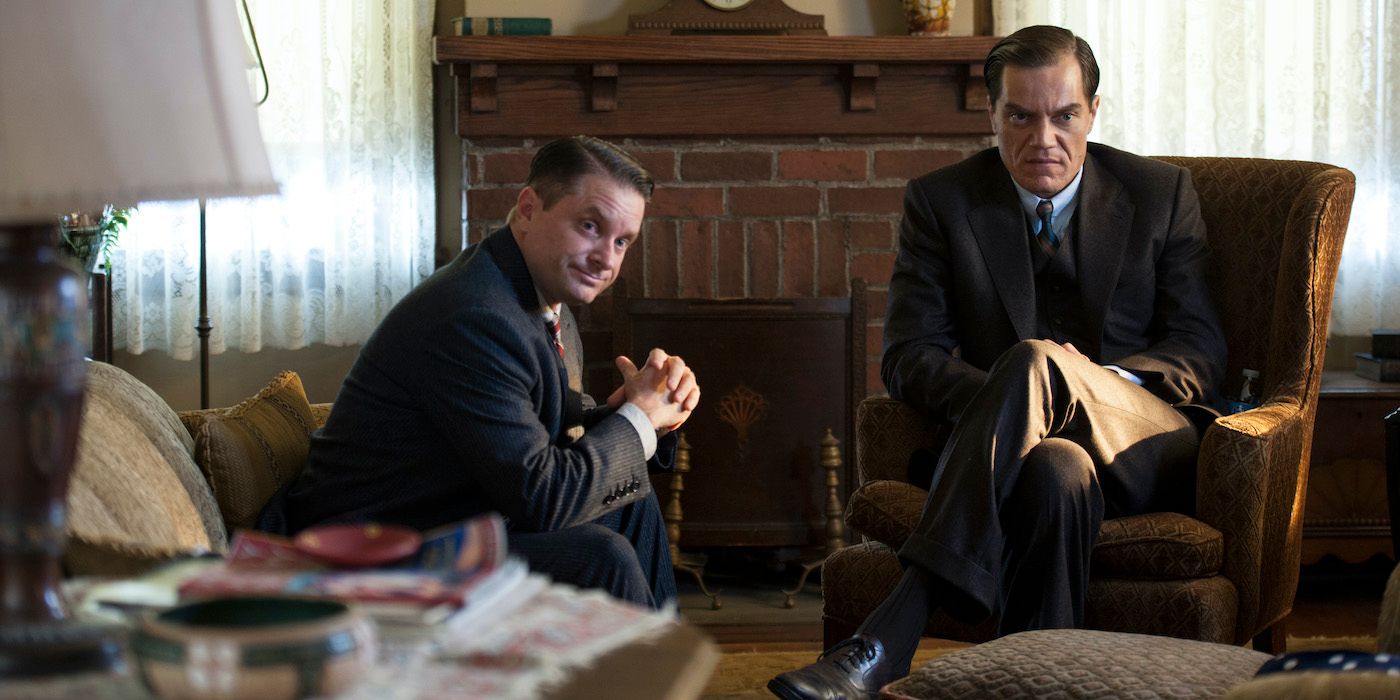
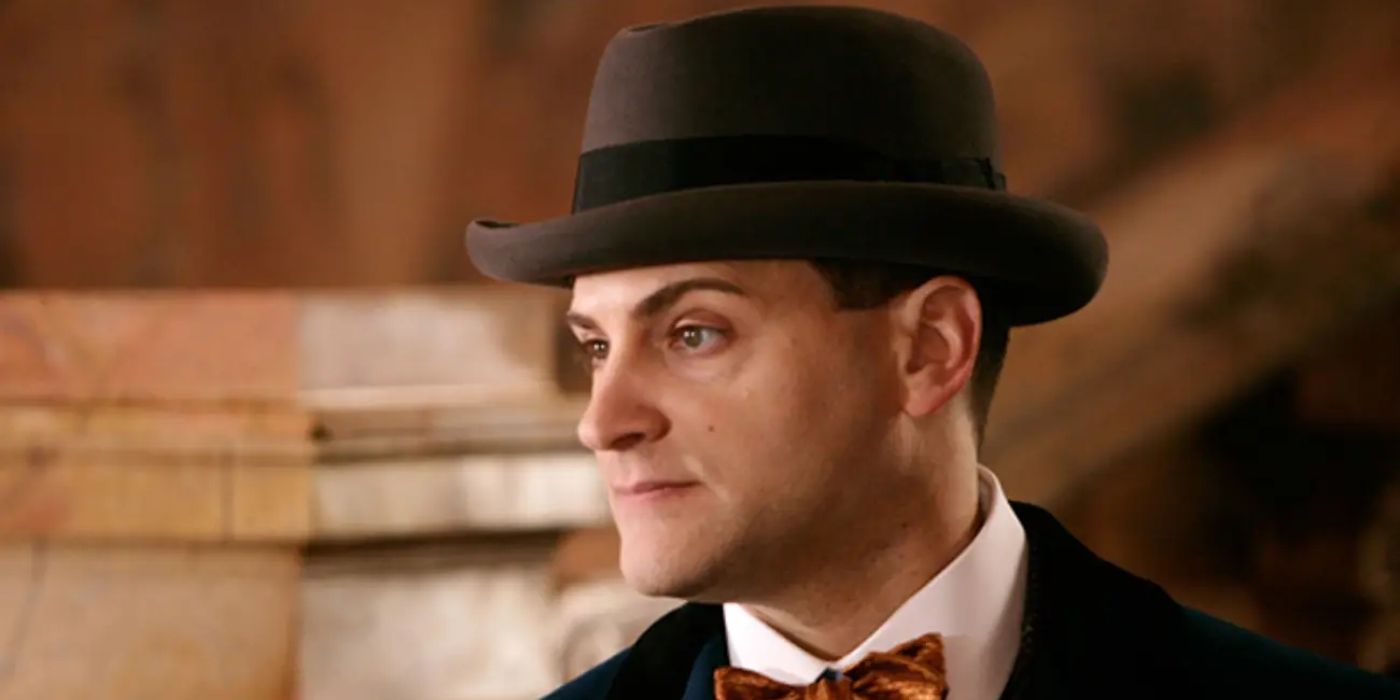
.jpg)
